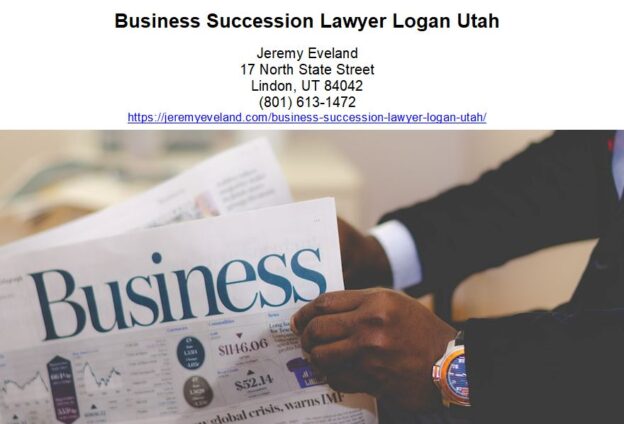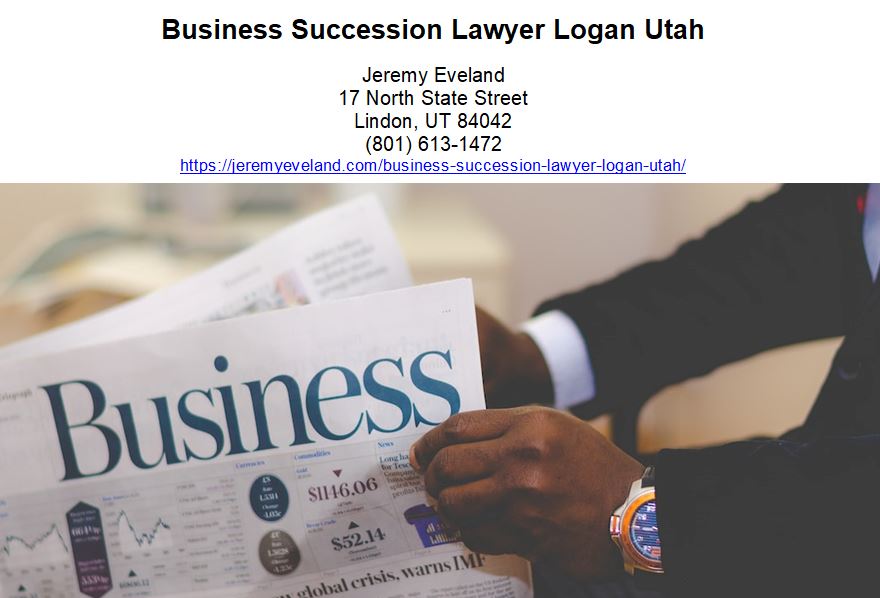If you’re considering adoption in Logan, Utah, you may have a multitude of questions and concerns swirling in your mind. But fret not, because the Adoption Lawyer Logan Utah is here to ease your worries and provide guidance every step of the way. In this article, we’ll address common legal concerns related to adoption, offering reassurance and important information that can help you make informed decisions. From understanding the adoption process to navigating legal requirements, we’ll cover it all. So, let’s delve into the world of adoption and create an emotional connection that will leave you feeling confident and ready to take the next steps toward building your family. Adoption is a beautiful and life-changing process that brings families together. If you are considering adoption in Logan, Utah, it is important to understand the laws and regulations surrounding adoption in order to navigate the process successfully. In this comprehensive article, we will provide an overview of adoption law in Utah, guide you through the adoption process, explain why you need an adoption lawyer, discuss the benefits of hiring one, help you find the right adoption lawyer in Logan, address common concerns in adoption, answer frequently asked questions, and provide information on how to start the adoption process in Logan. So, let’s dive in and explore all aspects of adoption law in Utah.
Overview of Adoption Law in Utah
Utah has specific laws and regulations in place to govern the adoption process. These laws ensure that the best interests of the child and all parties involved are protected. It is important to familiarize yourself with these laws to ensure a smooth and legal adoption journey. Working with an experienced adoption lawyer can help you navigate through the complexities of adoption law in Utah.
Adoption Laws and Regulations in Logan, Utah
Logan, Utah follows the same adoption laws and regulations as the rest of the state. These laws outline the requirements and procedures for adoption, including eligibility criteria, consent requirements, and the legal process for finalizing an adoption. It is crucial to comply with these laws to ensure a legal and successful adoption. An adoption lawyer specializing in Logan can help you understand and navigate these laws effectively.
Types of Adoptions in Utah
In Utah, there are various types of adoption that prospective parents can pursue. These include domestic adoption, international adoption, stepparent adoption, relative adoption, and foster care adoption. Each type has its own unique requirements, procedures, and challenges. Determining which type of adoption is right for you will depend on your circumstances and preferences. Consulting with an adoption lawyer will provide you with the guidance and information you need to make the best decision for your family.
The Role of an Adoption Lawyer
An adoption lawyer plays a vital role throughout the adoption process. They are knowledgeable about adoption laws and regulations and can provide expert guidance and support. Here are some of the key roles an adoption lawyer plays:
Understanding the Legal Complexities of Adoption
Adoption involves complex legal procedures, paperwork, and court hearings. An adoption lawyer can help you understand and navigate these complexities, ensuring that you comply with all legal requirements and procedures.
Ensuring Compliance with Adoption Laws
Adoption laws vary from state to state and even within different regions of a state. An adoption lawyer specializing in Logan, Utah, will have a deep understanding of the specific laws and regulations in that area and will ensure that you are in compliance with them.
Protecting Your Rights as an Adoptive Parent
Adoption can be emotionally challenging, and it is important to have an advocate who will protect your rights throughout the process. An adoption lawyer will ensure that your rights as an adoptive parent are protected and that the best interests of the child are always considered.
Handling any Legal Challenges or Disputes
Sometimes, legal challenges and disputes may arise during the adoption process. An adoption lawyer has the expertise to handle these situations and will work to resolve them in the best interest of all parties involved.
Having an adoption lawyer by your side throughout the adoption journey will offer peace of mind and reassurance, knowing that you have a legal expert supporting you every step of the way.
Benefits of Hiring an Adoption Lawyer
Hiring an adoption lawyer offers many benefits that can greatly enhance your adoption experience. Here are some of the advantages of having an adoption lawyer on your side:
Expert Guidance Throughout the Adoption Process
An adoption lawyer has extensive experience and knowledge in adoption law and procedures. They will provide you with expert guidance, answering your questions and assisting you at every stage of the adoption process.
Assistance with Paperwork and Legal Documentation
Adoption involves a significant amount of paperwork and legal documentation. An adoption lawyer will ensure that all necessary documents are completed accurately and submitted on time, minimizing the risk of delays or complications.
Representation in Court Proceedings
In some cases, adoption may require court hearings or proceedings. An adoption lawyer will represent you in these legal procedures, ensuring that your interests and the best interests of the child are effectively communicated to the court.
Negotiating with Birth Parents and Other Parties Involved
Adoption often involves negotiations with birth parents, adoption agencies, and other parties. An adoption lawyer will advocate for your interests and negotiate on your behalf, helping to ensure a smooth and fair process.
By hiring an adoption lawyer, you will have a trusted advocate and legal expert who will work tirelessly to facilitate a successful and legally sound adoption.
Finding the Right Adoption Lawyer in Logan, Utah
Finding the right adoption lawyer is essential to ensure a positive adoption experience. Here are some steps you can take to find the right adoption lawyer in Logan, Utah:
Researching and Identifying Experienced Adoption Lawyers
Do your research and identify adoption lawyers in Logan who have extensive experience in adoption law. Look for lawyers who specialize in adoption and have a proven track record of successful adoptions.
Reviewing Client Testimonials and Reviews
Client testimonials and reviews can provide valuable insights into the experiences of others who have worked with adoption lawyers. Read reviews and testimonials to get a sense of the satisfaction level and success rate of the lawyers you are considering.
Meeting with Potential Adoption Lawyers
Schedule consultations or meetings with potential adoption lawyers. Use this opportunity to ask questions, discuss your situation, and gauge their expertise and compatibility. This will help you determine which lawyer is the best fit for you and your family.
Considering Fees and Payment Options
It is important to discuss fees and payment options with potential adoption lawyers. Understand their fee structure, whether it is on an hourly basis or a flat fee, and inquire about any additional costs or expenses that may arise throughout the adoption process.
By investing time and effort in finding the right adoption lawyer, you can set a solid foundation for a successful adoption journey.
Common Concerns in Adoption
Adoption can raise various concerns and questions for prospective adoptive parents. Here, we address some common concerns and provide guidance and reassurance:
Understanding the Rights of Birth Parents
Birth parents have legal rights that must be respected throughout the adoption process. An adoption lawyer will ensure that these rights are upheld and that all necessary consents and legal procedures are followed.
Ensuring a Smooth Transition for the Child
The well-being and smooth transition of the child into their adoptive family is of utmost importance. An adoption lawyer can help facilitate this transition and provide guidance on creating a nurturing and supportive environment for the child.
Addressing Potential Legal Challenges
While adoption is a joyous process, there can be legal challenges that may arise. An adoption lawyer will help you navigate any potential legal hurdles, providing support and guidance to overcome them effectively.
Navigating the Emotions Involved in Adoption
Adoption is an emotional journey for all parties involved. An adoption lawyer understands the emotional dynamics of adoption and can offer support and guidance through the ups and downs of the process.
Remember, having an adoption lawyer on your side will provide you with the comfort and reassurance you need to navigate through any concerns or anxieties that may arise during the adoption journey.
Frequently Asked Questions About Adoption Law
Here are answers to some frequently asked questions about adoption law in Utah:
Are there age requirements for adopting a child?
Yes, there are age requirements for adopting a child in Utah. Prospective adoptive parents must be at least 21 years old to adopt.
Can a same-sex couple adopt in Utah?
Yes, same-sex couples can adopt in Utah. Utah law prohibits discrimination based on sexual orientation in adoption.
What is the cost of hiring an adoption lawyer?
The cost of hiring an adoption lawyer can vary depending on various factors, such as the complexity of the adoption, the lawyer’s experience, and the services provided. It is important to discuss fees and payment options with the adoption lawyer you are considering.
These are just a few of the many questions that may arise when considering adoption. It is always best to consult with an adoption lawyer for personalized and accurate information regarding your specific situation.
How to Start the Adoption Process in Logan, Utah
Starting the adoption process in Logan, Utah involves several steps. Here is a general guide to help you get started:
Gathering Necessary Documents and Information
Begin by gathering the necessary documents, such as identification, financial records, and personal references. You will also need to provide information about your background, lifestyle, and motivation for adoption.
Contacting Local Adoption Agencies
Reach out to local adoption agencies in Logan, Utah, to learn about their services, policies, and procedures. Establishing contact with adoption agencies will help you understand the adoption landscape in Logan and gather valuable information.
Attending Adoption Information Sessions
Many adoption agencies host information sessions or seminars to educate prospective adoptive parents. Attend these sessions to learn more about the adoption process, requirements, and available resources.
Preparing for the Home Study
The home study is a crucial part of the adoption process. It involves a thorough assessment of your home and lifestyle by a licensed social worker. Prepare your home by ensuring it is safe, clean, and suitable for a child.
By following these initial steps, you will be on your way to starting the adoption process in Logan, Utah.
The Home Study Process
The home study is a critical step in the adoption process, as it assesses your eligibility and suitability to adopt a child. Here is an overview of the home study process:
Home Visits and Interviews
A licensed social worker will conduct one or more visits to your home to assess the environment and interview you and your family members. These visits are an opportunity for the social worker to get to know you better and ensure that your home is safe and suitable for a child.
Background Checks and References
During the home study, background checks will be conducted to ensure that there are no issues that could potentially harm a child’s well-being. Additionally, personal references will be contacted to provide insight into your character and suitability as adoptive parents.
Education and Training Requirements
You may be required to complete education and training programs as part of the home study process. These programs aim to provide you with the knowledge and skills necessary to meet the needs of an adopted child.
Evaluation of Your Home and Living Situation
The social worker will evaluate your home and living situation, considering factors such as space, safety measures, and your ability to provide a stable and nurturing environment for a child. They will assess whether your home meets the necessary standards for adoption.
By preparing your home and cooperating with the home study process, you will demonstrate your readiness and commitment to providing a loving and supportive home for an adopted child.
Finalizing the Adoption in Logan, Utah
The finalization of an adoption is an important legal step that solidifies the parent-child relationship. Here is an overview of the finalization process:
The Finalization Hearing
The finalization hearing is a court proceeding during which a judge reviews the adoption case and, if all requirements have been met, issues the final adoption decree. This decree legally confirms the adoptive parents as the child’s legal parents.
Completing Necessary Paperwork
Prior to the finalization hearing, you will need to complete various paperwork, such as consent forms, adoption petitions, and other legal documents. An adoption lawyer will ensure that all necessary paperwork is completed accurately and submitted on time.
Obtaining the Final Adoption Decree
Upon successful completion of the finalization hearing and submission of all required documents, you will receive the final adoption decree. This decree confirms the legality of the adoption and grants the adoptive parents full parental rights and responsibilities.
The finalization of an adoption is a joyous occasion, marking the completion of a lifelong commitment. It is a celebration of love, family, and the creation of a forever bond.
In conclusion, adoption law in Utah, and specifically in Logan, is designed to protect the best interests of the child and ensure a smooth and legally sound adoption process. By working with an experienced adoption lawyer, you can navigate the complexities of adoption law, protect your rights as adoptive parents, and receive the necessary guidance and support throughout your adoption journey. Remember to research, ask questions, and find the right adoption lawyer who will be your advocate and legal expert. With the right resources and professionals by your side, you can embark on a successful adoption journey and welcome a child into your loving family.
FAQs:
Q: Can a single person adopt a child in Utah? A: Yes, single individuals can adopt a child in Utah. The eligibility criteria for adoption applies to both single individuals and couples.
Q: How long does the adoption process typically take in Logan, Utah? A: The length of the adoption process can vary depending on various factors, such as the type of adoption, the availability of suitable matches, and any potential legal challenges. On average, the adoption process can take several months to a year or more.
Q: What are the eligibility requirements for adopting a child in Logan, Utah? A: The eligibility requirements for adopting a child in Logan, Utah, include being at least 21 years old, passing a criminal background check, being in good physical and mental health, and having the ability to provide a safe and nurturing environment for a child.
Call [phone number] today to speak with our experienced adoption lawyer in Logan, Utah, and take the next steps towards building your loving family through adoption.































